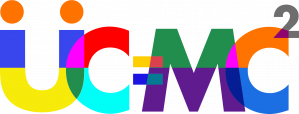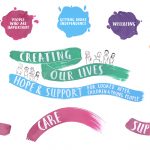impact
What do you try to change?
To achieve change we have sent the report to relevant decision makers. As a result we were invited to share the findings with Glasgow’s Public Health Oversight Board. This was a key opportunity to share research with high level decision makers. We also delivered a launch event with decision makers, policy professionals and practitioners to share the findings of the event. This session was delivered with some of the young peer researchers, attendees told us how they valued this shared space where hierarchies between children and adults were flattened. We have shared the findings in a range of follow up events and have developed a suite of resources to share the work. In addition we are currently working on a journal article to share the findings with this audience. It has been hard to track tangible policy change so far, however we have raised awareness of the needs of children and young people and added to the evidence base.
-
evidence
Tell us what you found out - what were people's experiences, views or ideas for change?
To develop the research project, the young peer researchers identified that the particularly enjoyed using games to develop their understanding of how to do research. This included things like 20 questions and other investigative games. They also enjoyed using mix and match games to develop their skills in analysing data and sorting it into themes. Mixing skills and knowledge development with games and activities was a key part of engaging them in the process and made it inclusive for all ages and needs.What are your recommendations or calls to action?
Final Project report – https://childreninscotland.org.uk/wp-content/uploads/2020/02/Health-Inequalities-Report-Chris-Ross.pdf Animation – https://www.youtube.com/watch?v=5TYiMZKZIMs Static Assets – (Can be sent as a zip file – please email if required) 3x Briefings for decision makers on key research themes - Family and Friends – https://childreninscotland.org.uk/wp-content/uploads/2020/09/HI-Briefing-FF.pdf - Safety – https://childreninscotland.org.uk/wp-content/uploads/2020/09/HI-Briefing-Safety.pdf - Littering – https://childreninscotland.org.uk/wp-content/uploads/2020/09/HI-Briefing-Littering.pdf -
advice
Tell us your advice on doing participation activities - what worked well, what you enjoy, what is inclusive?
The young peer researchers used photography based methods to gather some data for the project. They said this made doing research more fun than they expected. They also said that using photographs helped them with the analysis of the project as it gave them a reference point. We would recommend using photo and other art based methods to engage children and young people in research.


